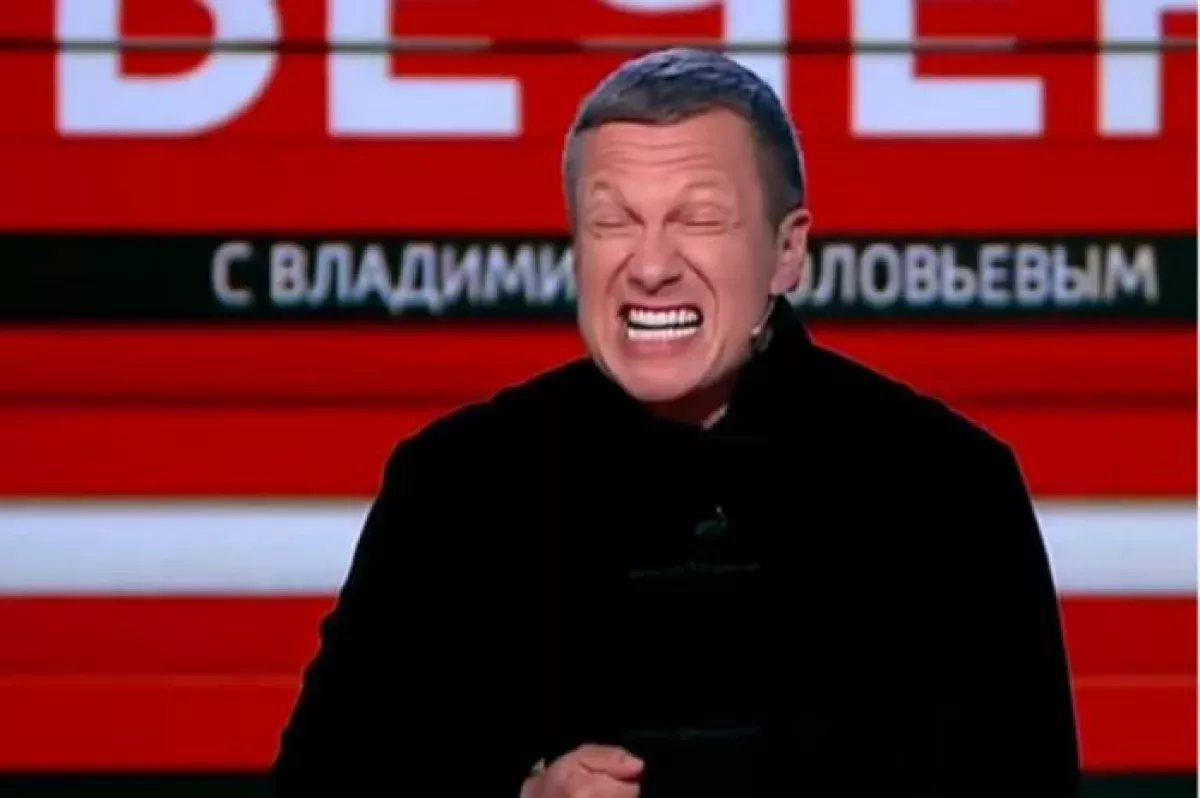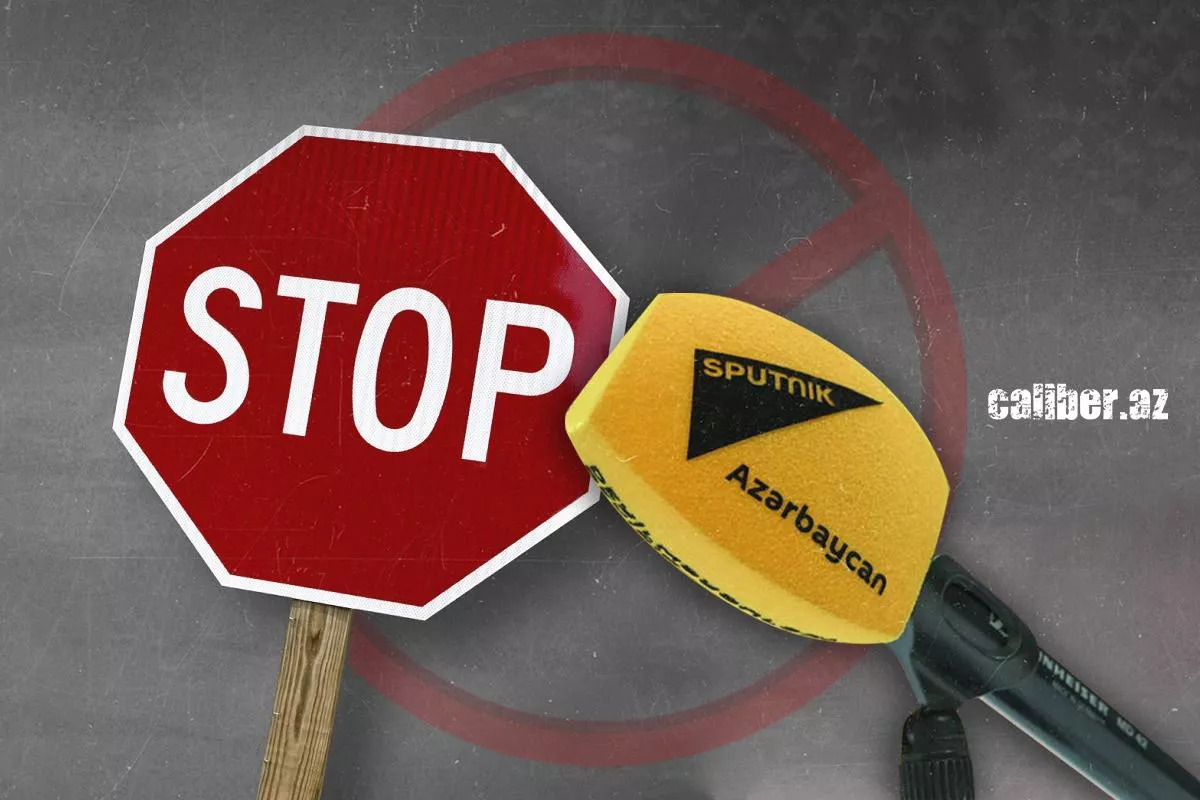Baku exposes the Kremlin’s espionage disguised as journalism Sputnik’s real mission in Azerbaijan
During an operation carried out by the law enforcement agencies of the Republic of Azerbaijan, two employees of the Sputnik Azerbaijan news agency were detained. According to the APA news agency, they were working for Russia’s Federal Security Service (FSB). The official spokesperson of the Russian Foreign Ministry, Maria Zakharova, has already thrown a tantrum, complaining that “Russia is concerned that its diplomats in Baku have been unable to contact the journalists for over two hours.”
It seems Zakharova will continue to bluster with statements about how outraged Russia is over the incident. Predictably, wailing voices from Russia will soon follow—from propagandists like Margarita Simonyan and Vladimir Solovyov to politicians of all stripes, ranging from Pyotr Tolstoy to Konstantin Zatulin.

Baku will pay no attention to this manufactured outrage—not least because, even during the Soviet era, journalism was often used as a cover for intelligence operations. This was especially true for employees of the KGB’s First Chief Directorate sent on assignments abroad. Journalists working for Soviet agencies and publications such as TASS, Pravda, Izvestia, and Literaturnaya Gazeta were repeatedly suspected of working for the secret services—and not without reason.
Former KGB Major General Oleg Kalugin, in his memoir The First Directorate, wrote candidly that many Soviet correspondents abroad “worked not only with a notepad, but also on intelligence tasks.” According to him, the journalist cover was the most convenient—it allowed legal contact with sources, attendance at events, and movement around the country with minimal scrutiny from local intelligence services.
Vladimir Pozner, who worked for years in radio and television in the US and France, later admitted that he served as a “propagandist” and, in essence, was part of a state disinformation machine. While there’s no direct proof linking him to the KGB, he himself said: “I did what I was told to do from above. It wasn’t free journalism.”
In the 1980s, several Soviet journalists accredited to the United Nations in the United States were exposed as intelligence operatives. One such case involved a TASS correspondent who was expelled for “activities incompatible with journalism.”
Yuri Bezmenov, a former KGB officer who defected to the West, openly described how he and his colleagues, under the guise of working for RAN (Russian News Agency) and Novosti, carried out “active measures”—bribery, disinformation, recruitment, and manipulation of public opinion.
After the collapse of the USSR, the Federal Security Service (FSB) and the Foreign Intelligence Service (SVR) emerged as successors to the KGB, among other agencies. Yet the methods largely remained the same. Russian intelligence services have continued to use journalism as cover for operational activity abroad.
In 2019, the Netherlands expelled several Russian “journalists” working for the state media outlets Rossiya Segodnya (Russia Today) and Sputnik. The country’s intelligence services stated that these individuals were, in fact, officers of the GRU (now officially known as the GU). One of those expelled was registered as a “freelance journalist” but had been collecting sensitive information about local politics. Similar accusations have been made by the Czech Republic, Norway, Germany, the United States, Canada, and other countries, which have repeatedly reported on “journalists” who were in reality linked to Russian intelligence services.

These are the facts. Sputnik News Agency, established in 2014 as part of the Rossiya Segodnya media holding, was from the very beginning viewed as a mouthpiece for Kremlin propaganda. Its mission is not merely to “inform,” but to disseminate pro-Kremlin narratives abroad.
In 2017, France denied accreditation to Sputnik and RT at Emmanuel Macron’s campaign events, stating that they were “not media outlets, but instruments of influence and propaganda.” In the United States, the United Kingdom, and the Baltic states, Sputnik has been officially designated as a foreign agent. Its operations are viewed as part of a broader hybrid warfare strategy, with its employees seen as potential intelligence operatives.
In 2020, analysts from the NATO StratCom Centre noted that Sputnik has clear links to information operations orchestrated by Russian intelligence services, including the FSB and the GRU. As we can see, the practice of using journalists as cover for espionage and influence campaigns is well-established and dates back to the KGB era.
Today, this tradition continues through structures such as Sputnik, RT, and other Kremlin-controlled media. The FSB and other Russian intelligence agencies still utilise media outlets not only for propaganda purposes but also for operational tasks—disguising their personnel as reporters, editors, camera operators, and analysts.
Therefore, Azerbaijan’s actions against the representatives of Sputnik in the country are entirely justified—albeit overdue. But, as the saying goes, better late than never.








